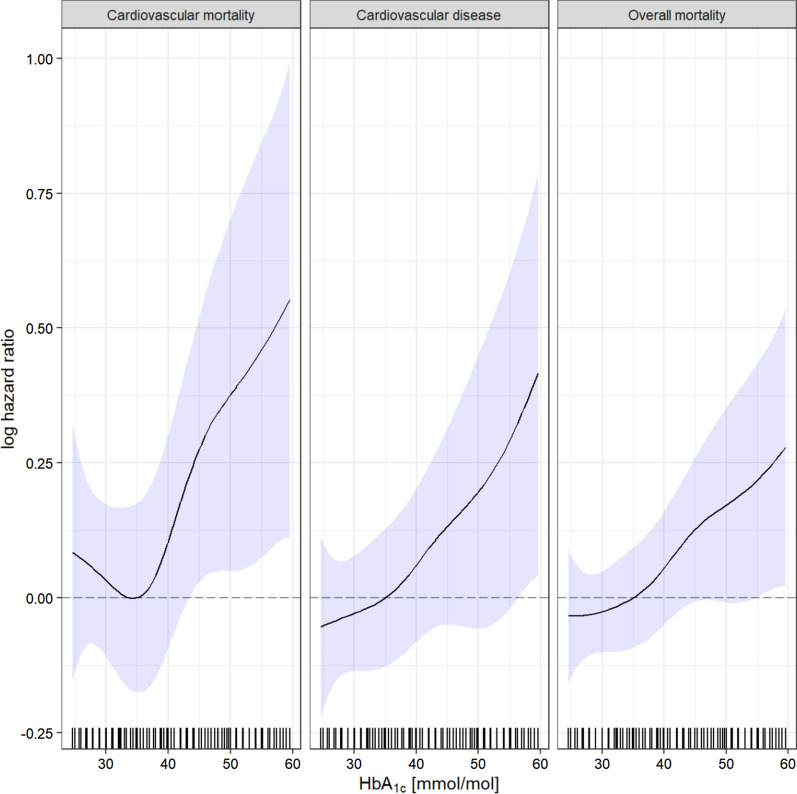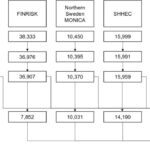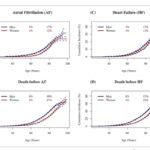
Association of glycated hemoglobin A 1c levels with cardiovascular outcomes in the general population: results from the BiomarCaRE (Biomarker for Cardiovascular Risk Assessment in Europe) consortium
This study aims to assess the association of Glycated hemoglobin A1c (HbA1c) with cardiovascular outcomes in the general population. Biomarkers may contribute to improved cardiovascular risk estimation. HbA1c is used to monitor the quality of diabetes treatment. Its strength of association with cardiovascular outcomes in the general population remains uncertain. Data from six prospective population-based cohort studies across Europe comprising 36,180 participants were analyzed. HbA1c was evaluated in conjunction with classical cardiovascular risk factors (CVRFs) for association with cardiovascular mortality, cardiovascular disease (CVD) incidence, and overall mortality in subjects without diabetes (N = 32,496) and with diabetes (N = 3684). A hazard ratio (HR) of 1.16 (95% confidence interval (CI) 1.02–1.31, p = 0.02) for cardiovascular mortality, 1.13 (95% CI 1.03–1.24, p = 0.01) for CVD incidence, and 1.09 (95% CI 1.02–1.17, p = 0.01) for overall mortality was observed per 10 mmol/mol increase in HbA1c. The association with CVD incidence and overall mortality was also observed in study participants without diabetes with increased HbA1c levels and HR 1.10; 95% CI 1.01–1.20, p = 0.02) respectively. HbA1c is independently associated with cardiovascular mortality, overall mortality and cardiovascular disease in the general European population. A mostly monotonically increasing relationship was observed between HbA1c levels and outcomes. Elevated HbA1c levels were associated with cardiovascular disease incidence and overall mortality in participants without diabetes underlining the importance of HbA1c levels in the overall population.
To read more: https://cardiab.biomedcentral.com/articles/10.1186/s12933-021-01413-4

